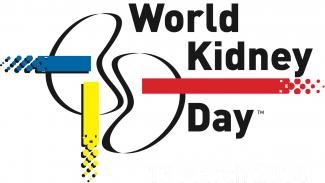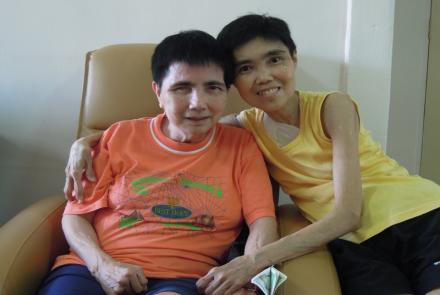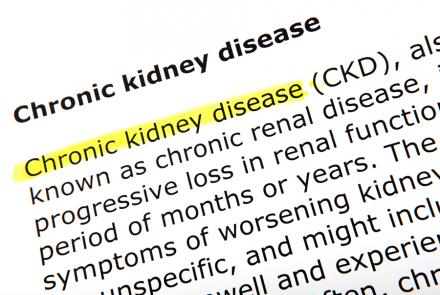
It is estimated that about 2 lakh (200,000) new patients develop end-stage kidney failure every year in India. Dialysis can extend their life, but the treatment can be demanding and disruptive. Dr. Jyotsna Zope, a senior consultant Nephrologist gives us an overview about dialysis and advices ways to prevent kidney problems and diseases.
What is dialysis?
Dialysis is a procedure by which waste product and excess water are removed from the body. The waste products (‘Uremic toxins’) are the end product of the body metabolism and the excess water is the fluid ingested but has not been excreted out because of nonfunctioning of the kidney. It is a life saving technique for patients with kidney failure.
If someone has kidney disease, will they need dialysis?
Anyone with any kidney disease can require undergoing Dialysis. It is required when the kidney function has gone down sufficiently enough as it is not possible to maintain the health of the patient only with medicine.
What are the symptoms of kidney failure?
Common symptoms of Kidney failure are –
- Loss of appetite, nausea, vomiting.
- Weakness, fatigue, weight loss.
- Swelling(edema) of lower legs.
- Swelling of face or around the eyes especially in the morning.
- High Blood pressure, especially if severe, uncontrolled or in young individuals.
- Pallor
- Sleep problem, lack of concentration and dizziness.
- Itching, muscle cramps or restlessness.
- Flank pains.
- Frequent urination especially at night
When should dialysis be started?
When the kidney function is reduced by 85-90% then the patient needs to go on Dialysis. Till that time the patient can be managed with the help of medicines.
Are there different types of dialysis?
There are two main types of Dialysis -
- Haemodialysis
- Peritoneal dialysis
Haemodialysis: In Haemodialysis, waste products and excess fluids are removed from the blood by passing the blood through a special filter also called as Artificial Kidney or Dialyzer, aided by a dialysis machine.
Peritoneal dialysis: In Peritoneal dialysis, a soft tube or catheter is inserted through the skin, into the abdominal cavity and dialysis solution is infused into the abdominal cavity to remove waste products and excess fluid from the body. This is done at home, usually without the help of machine.
Are there any adverse effects of kidney dialysis?
Low blood pressure (hypotension) is one of the most common side effect of hemodialysis. It can be caused by the drop in fluid levels during dialysis. Low blood pressure can cause nausea and dizziness. The best way to minimise these symptoms of low blood pressure is to keep to your daily fluid intake recommendations. The other short term side effects are Muscle cramps, Itching, Sleep problems, Anaemia, Bone disease, High Blood Pressure, Fluid overload.
There are four long term complications on Dialysis, such as Heart disease, Bone disease, Amyloidosis and Nerve damage.
Do dialysis patients have to control their diet?
Yes, common dietary recommendations for dialysis patients are restriction of sodium, potassium, phosphorus and fluid intake. Dialysis patient must follow these dietary advices but dietary restrictions are reduced after dialysis is initiated in CKD (chronic kidney disease). Most patients on dialysis are advised to take more protein compared to their pre-dialysis prescription, with adequate calories, water soluble vitamins and minerals. It is advisable that patients on dialysis consult a dietitian to adequately plan their diet.
Related reading: Chronic Kidney Disease Diet
Can dialysis patients travel?
Yes, if their physical condition permits. They have to continue taking dialysis while they are away from the home. Of course you should consult the doctor before planning the travel and should arrange for the dialysis at the travel destination well in advance. Most doctors encourage travel if the patient’s condition is stable.
Can dialysis patients continue to work?
Yes, if their physical condition permits. On the contrary it is advisable for the patient to engage themselves in a working routine. Dialysis patients can be subjected to unfair treatment at work. The patient has to attend to their dialysis schedule which could interfere in their work timings.
Are there alternatives to dialysis?
Renal transplantation is the alternative mode of treatment for Dialysis, though it is difficult to get either live or deceased Kidney. The patients only require one kidney to survive. Patients have to keep taking the special group of medicines called Immunosuppressive after kidney transplant.
How long can you live on dialysis?
Life expectancy on dialysis can vary depending on your other medical conditions and how well you follow your treatment plan. Average life expectancy on dialysis is 5-10 years. However, many patients have lived well on dialysis for 20 or even 30 years.
Is it really possible to get off kidney dialysis?
It is only possible to get off Dialysis if the disease is of Acute Kidney Injury type (AKI). The damage in AKI is reversible. But in Chronic Kidney Injury (CKD) the damage is irreversible and it is impossible to stop dialysis once it is started.
Could you spell out 7 ways to avoid dialysis and avoid kidney disease?
- Eat right and lose weight
- Exercise regularly
- Don’t smoke
- Avoid excess salt in your diet
- Control high Blood Pressure
- Control Diabetes
- Treat Urinary Infections promptly
Dr. Jyotsna Zope is a senior consultant Nephrologist in Mumbai

















